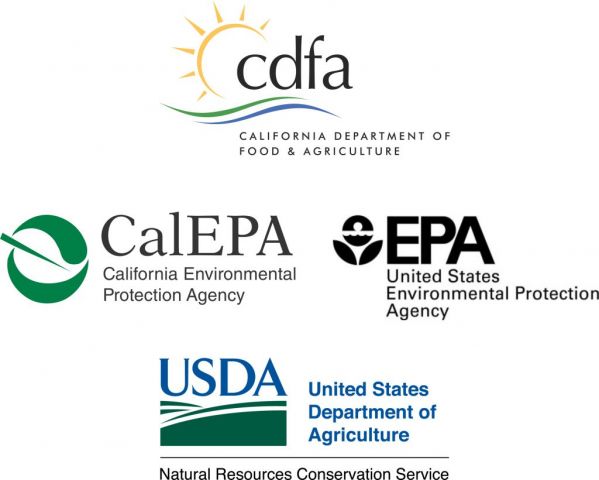Jan 11, 2022On-farm compost research site set for farmers and ranchers
The Federal-State On-Farm Compost Work Group is pleased to announce the launch of an On-Farm Compost Resource Website.
The resources on this website include information and tools to help farmers and ranchers compost agricultural byproducts, including manure, and maintain compliance with federal, state and local regulations.
The website is hosted by the California Department of Food and Agriculture (CDFA) and was developed as part of a larger collaborative working group that was co-led by the U.S. Environmental Protection Agency (US EPA), US Department of Agriculture Natural Resource Conservation Service (USDA NRCS), and California Environmental Protection Agency (CalEPA) as well as eleven additional state and regional regulatory bodies.
The working group was formed in 2019 to help reduce barriers and clarify regulatory requirements for producers wishing to co-compost off-site agricultural waste.


“California will dramatically cut a major source of climate warming gas when we launch food and yard waste composting statewide in 2022,” said California Environmental Protection Agency Secretary Jared Blumenfeld. “Using this compost on our agricultural and rangelands will add to that greenhouse gas reduction and help drought-ravaged soil retain water.”
“The tools created by the On-Farm Compost Work Group will help promote the composting of agricultural materials in California,” added EPA Pacific Southwest Acting Regional Administrator Deborah Jordan. “Composting is an alternate pathway for agricultural materials, which will reduce ag burning in California, thus protecting air and water quality.”
“Application of compost is a common soil health practice, that can help farmers in our arid climate maintain and build soil carbon,” said NRCS California State Conservationist Carlos Suarez. “Compost application improves plant health and crop yields, increases water retention and infiltration, and sequesters carbon. This effort helps create valuable soil amendments from diverse on-farm resources. It’s a win-win for California agriculture.”














